Envoy is a widely-adopted, open source network proxy, designed as a layer 7 edge and service proxy for cloud native applications.
Initially developed by engineers at Lyft and released on September 14, 2016, Envoy is now hosted by Cloud Native Computing Foundation (CNCF). This report attempts to objectively assess the state of the Envoy project and how CNCF has impacted the progress and growth of Envoy.
Of course, without access to a multiverse to play out alternative scenarios, it is impossible to sort out correlation and causation. However, this report can at least document correlations. This report is one of a series of project journey reports we will be publishing focused on the graduated projects hosted by CNCF. (The first report covered the Kubernetes project.)
Project Snapshot
Envoy’s first commit was made on August 8, 2016. Between joining CNCF on September 13, 2017 and today, Envoy has added:
Note: These statistics were collected with the DevStats tool, which CNCF built in collaboration with CNCF project communities. “Contributor” is defined as somebody who made a review, comment, commit, or created PR or issue.
CNCF Premise of Open Source Software Development
A basic premise behind CNCF, our conferences (including KubeCon + CloudNativeCon and EnvoyCon), and open source in general, is that most interactions are positive-sum. There is no fixed amount of investment, mindshare, or development contributions that is allocated to specific projects.
Just as open source development is based on the idea that, collectively, we are smarter than any one of us, open source foundations work to make the entire community better off. Equally important, a neutral home for a project and community fosters this type of positive-sum thinking and drives growth and diversity that we believe are core elements of a successful open source project.
Code Diversity
After launching as an internal project at Lyft over four years ago, Envoy today enjoys meaningful code contributions from more than 180 organizations and more than 155 end-user companies.
As such, Envoy embodies user-driven innovation. Envoy demonstrates that a high-velocity open source project can emerge from the end-user community and garner wide adoption and contribution levels from both the vendor and end-user communities. Envoy code contributions come from a wide range of companies.
Contributors to Envoy include many of the world’s largest tech companies (Google, Amazon, Alibaba, Salesforce, VMware, Apple) as well as fast-growing mid-size companies (Square, Shopify, AirBnB). Contributions also come from dozens of small businesses and startups (such as Kolide and GOAT Sneaker Marketplace). Contributing organizations to Envoy are well dispersed between vendors and end users, evidence that end-user innovation can foster and sustain fast-growing, successful projects. Also, Envoy has been embraced by multiple software foundations including the Apache and the OpenStack Foundations, both of which have contributed code.
Diversity Across Company Size and Type – by the numbers
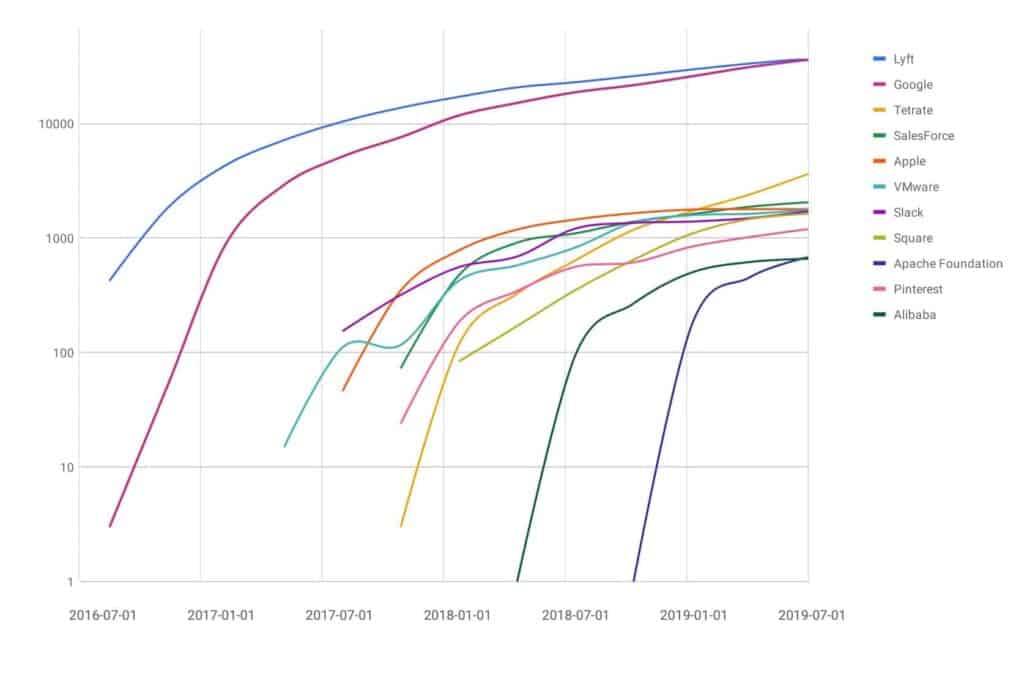
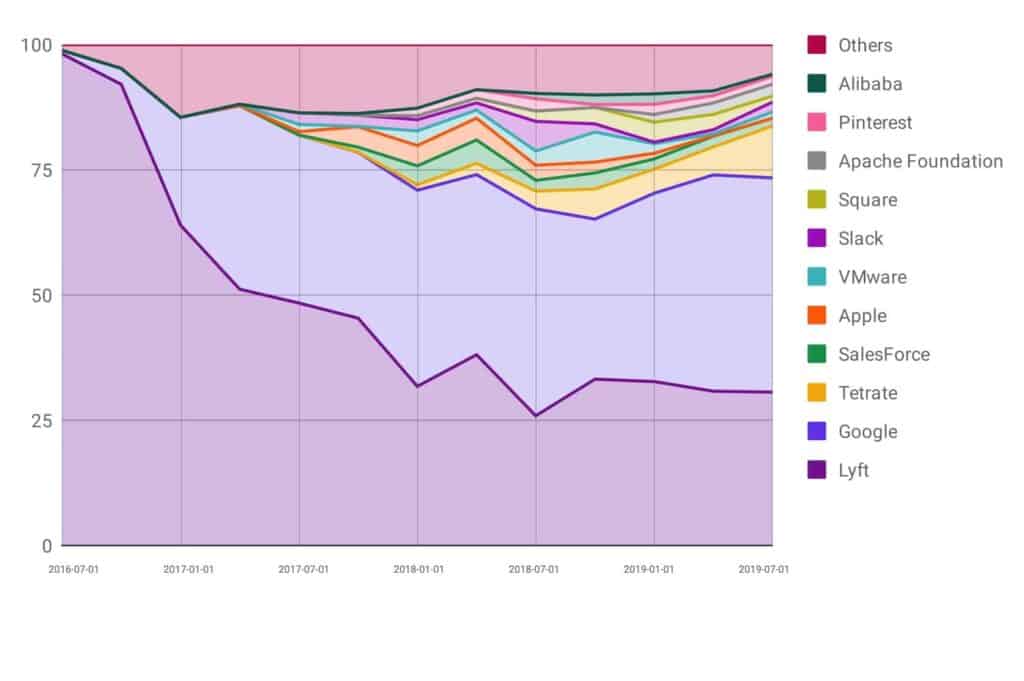
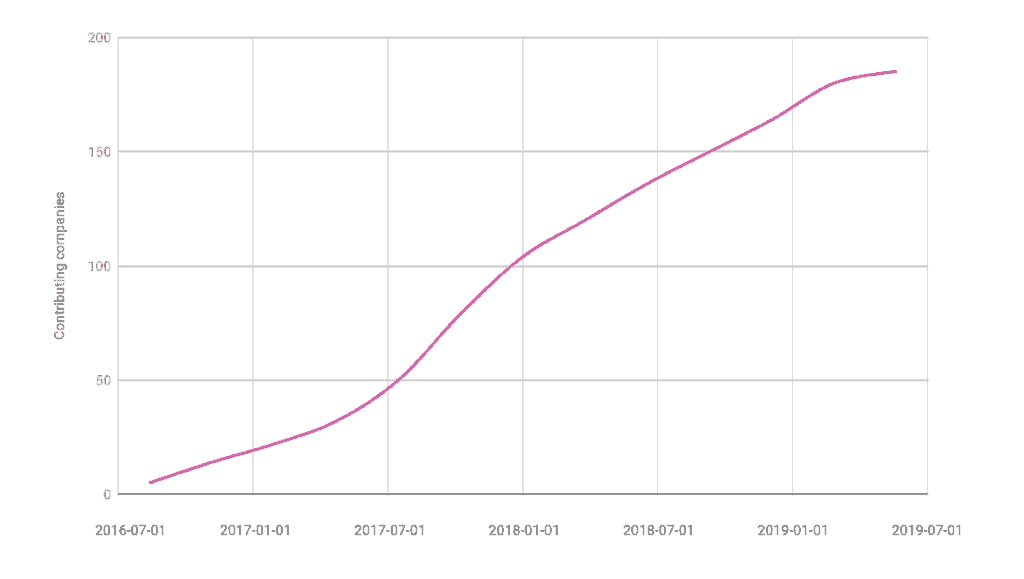
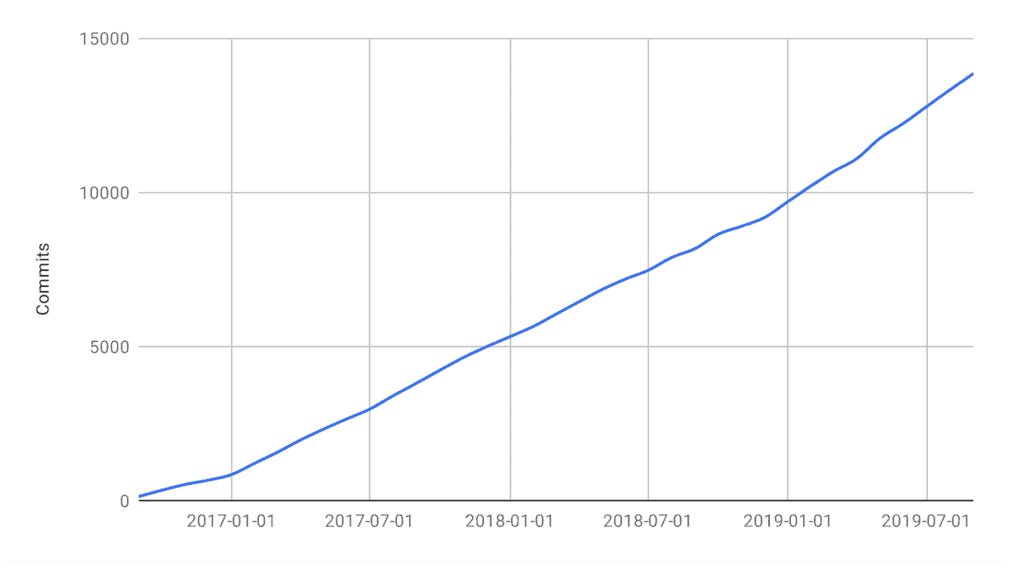
Geographic diversity of contributors
Contributors to Envoy have come from more than two dozen countries spread across five continents since project inception.
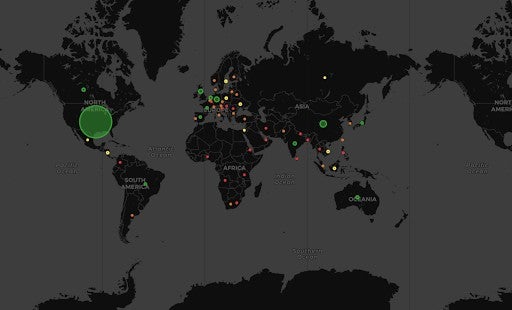
The geographic diversity of contributions has expanded quickly. In the first year of the project, a monthly average of contributors from 17 countries submitted code. In the second 12 months of the project, a monthly average of contributors from 41 countries submitted code.
In the third 12 months of the project, a monthly average of contributors from 50 countries submitted code. Contributions by developers in the United States have fallen from over 75% at project inception to less than 50% as of September 2019, diversifying code contributions. Even as code has come from more countries, the volume of contributions has continued to increase steadily. These charts show the number percentage of contributors over time, broken down by country.
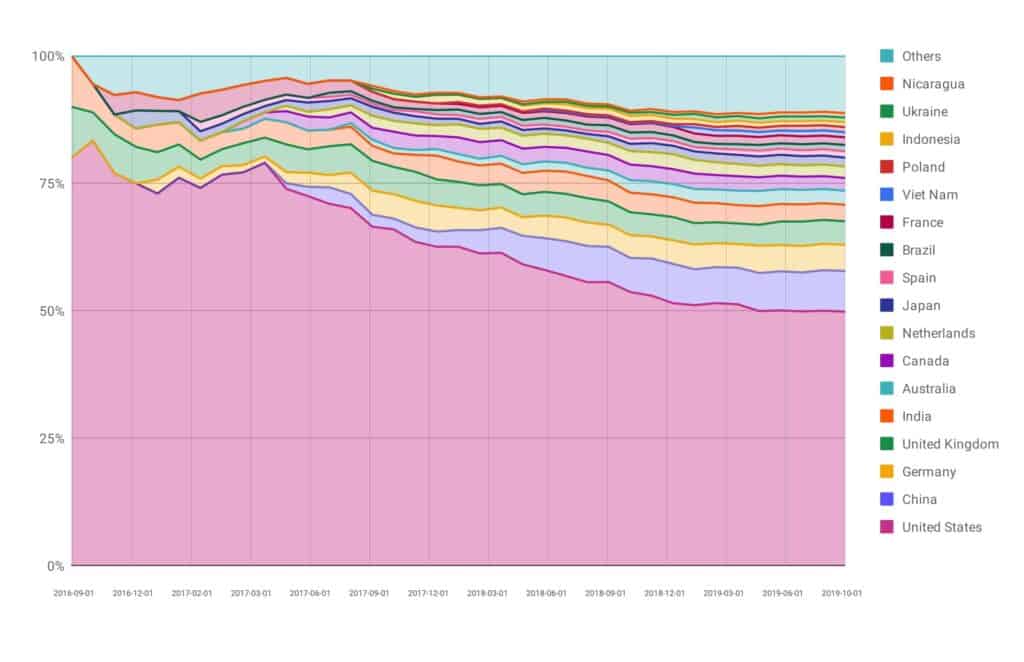
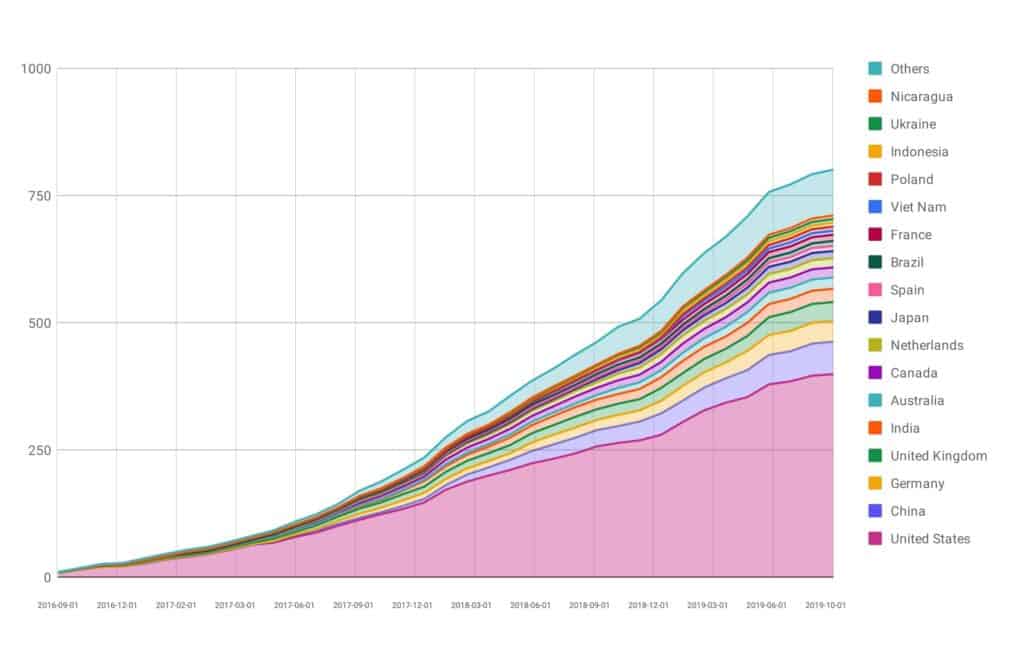
Development Velocity
Envoy is growing quickly and is among the top three CNCF projects in terms of velocity.
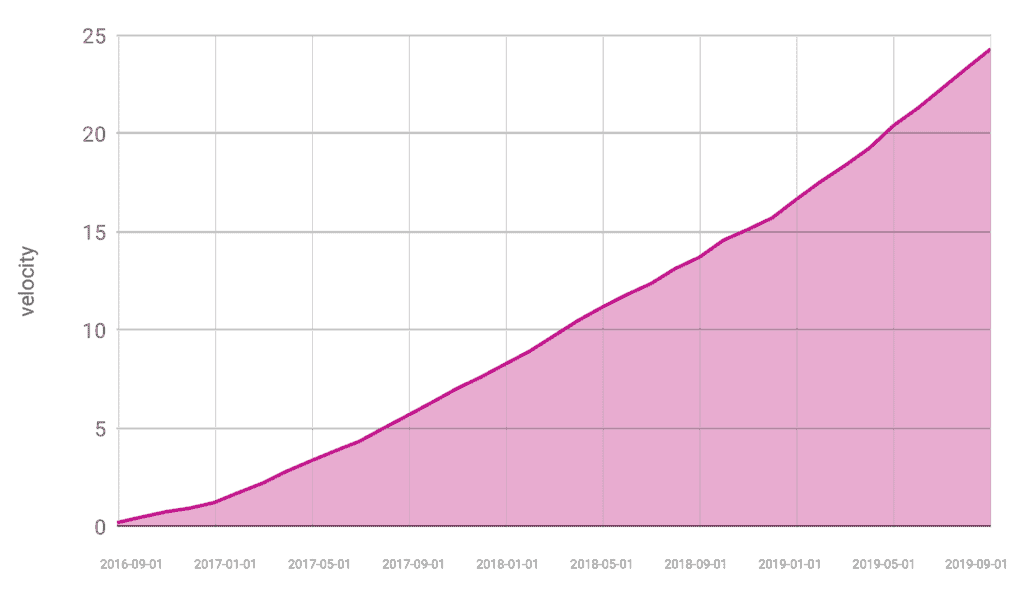
One way we track developer velocity is with the following formula: velocity = commits + PRs + issues + authors. We also look at the growth of PRs, code commits, and issues filed as separate line charts.
A third way to examine is simply by looking at the cumulative number of contributors over time. The charts in this section describe the constantly and sharply rising velocity for Envoy.
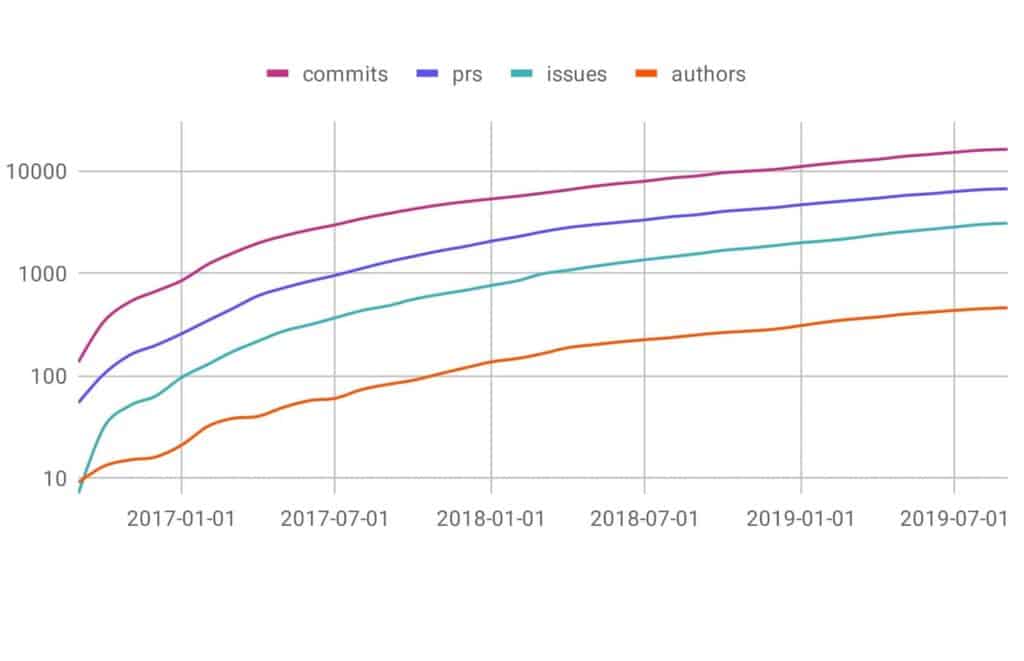
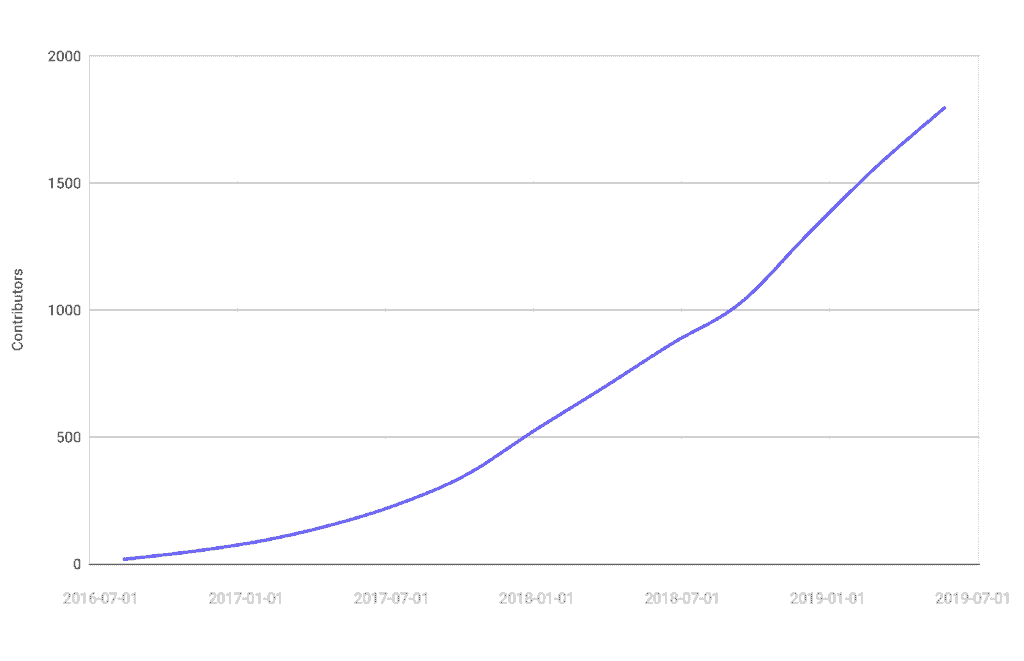
Education, Events and Sponsorship
Growth of community participation in education, events, and sponsorship are reliable proxies for the health of a project.
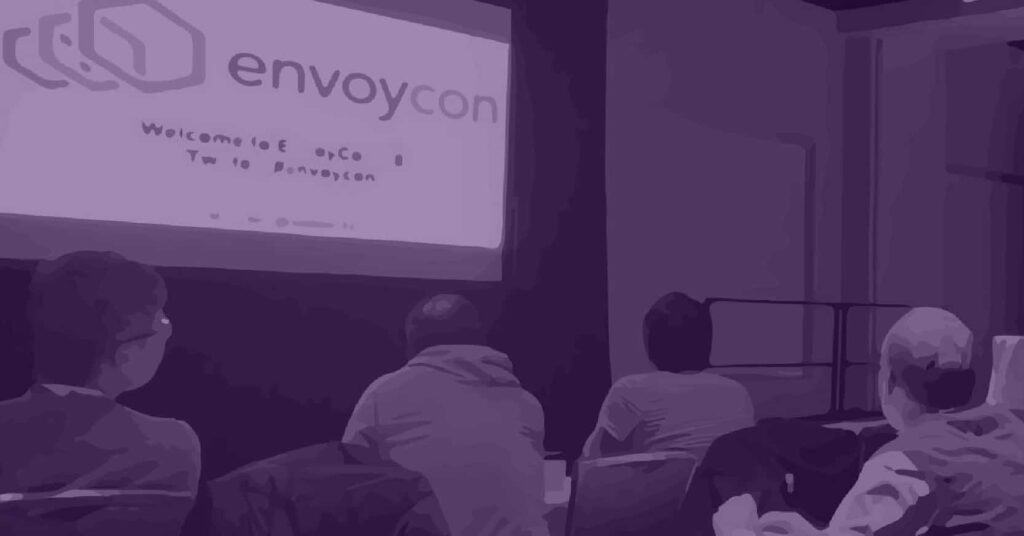
Envoy has begun efforts in these areas in the past year, launching the first EnvoyCon as a Day 0 co-located event at KubeCon + CloudNativeCon in Seattle 2018 with attendance of 384.
The second major Envoy event is slated for KubeCon + CloudNativeCon San Diego in November 2019, attendance for that event is expected to hit 500.
CNCF is working with the Envoy maintainers to plan how the event can expand in the future.
Marketing, Growth and Programs
When Envoy joined CNCF in September 2017, CNCF started promotional efforts to help sustain, nurture, and expand the Envoy community.
This included blog posts, email newsletter mentions, and social media support. Thanks in part to these marketing efforts, public awareness of and interest in Envoy have grown quickly. Google Trends data for Envoy shows a greater than 3x increase in peak awareness since the project was contributed to the CNCF in September 2017. Envoy has also been covered as part of 6 different CNCF-hosted webinars and 8 end user case studies.
Google Trends Data for Term “Envoy Proxy”
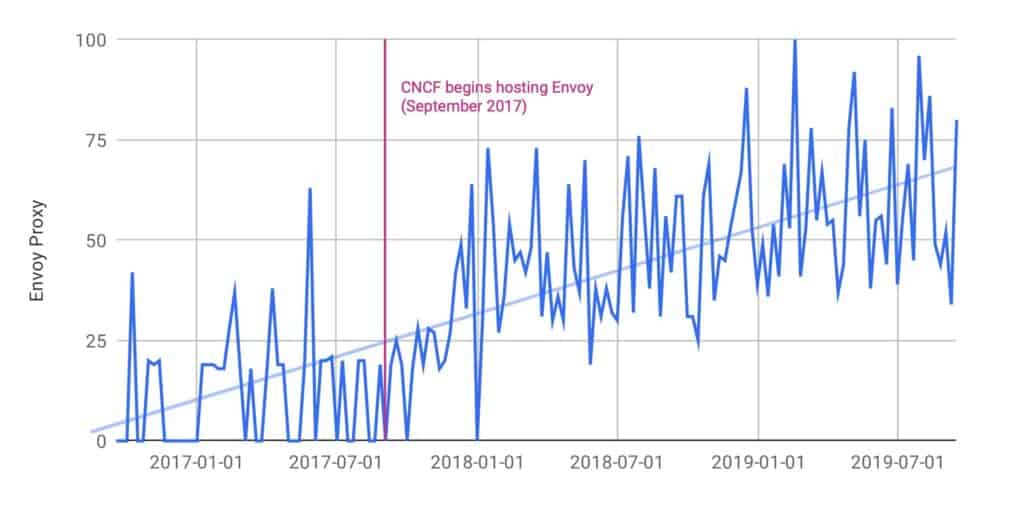
Project Documentation
Continuous additions to and improvements of project documentation are essential for the growth of any open source project. Robust documentation is critical to educating new users, helping existing users resolve problems, and for performance optimization of their code.
Envoy documentation has rapidly expanded. Since joining CNCF, the number of authors and companies committing documentation to Envoy has grown by more than 300% and 200%, respectively. As of this report, over 200 authors are committing and over 60 companies are involved in committing documentation. The number of documentation commits has increased by 316.2% since Envoy joined CNCF through the end of August 2019.
Note: Documentation for Envoy is collected in .RST files. CNCF uses the DevStats tool to automatically collect and count statistics of all relevant .RST files in the Envoy repositories in GitHub.
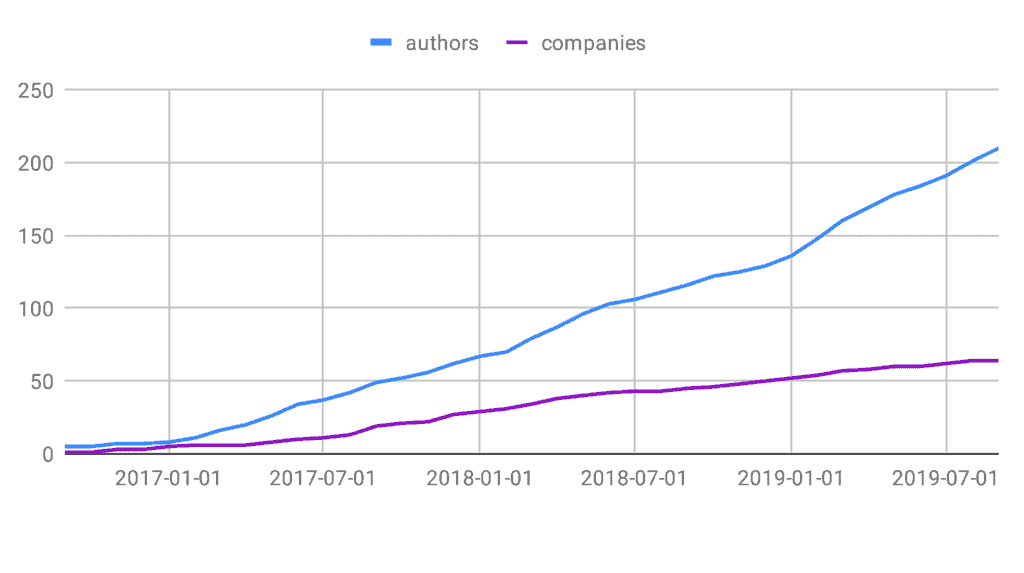
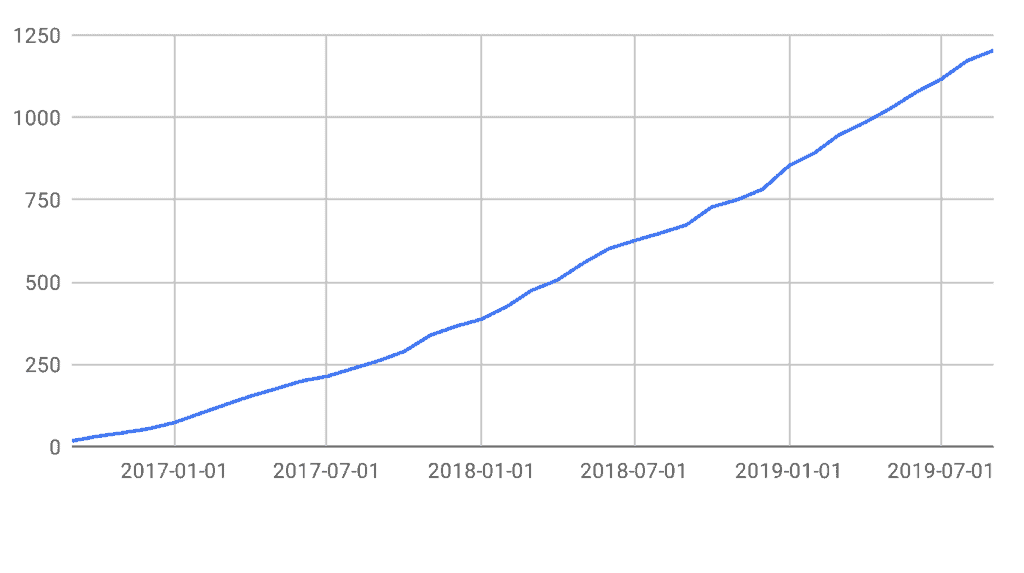
Conclusion
CNCF is committed to fostering and sustaining an ecosystem of open source, vendor-neutral projects by democratizing state-of-the-art patterns to make technology accessible for everyone.
We hope this report provides a useful portrait of how CNCF is fostering and sustaining the growth of Envoy.
“When I started Envoy 4.5 years ago, never in my wildest dreams would I have imagined the state of the project today. The growth of the community and the rapid uptake of the technology within the industry has been truly astounding. Envoy is now widely used throughout the world by all major cloud vendors, countless small, medium, and large organizations, and numerous vertical products that have chosen to build on top of Envoy as a platform. I’m excited to see what the next 4.5 years brings.”
— Matt Klein, Engineer, Lyft (Envoy project creator and maintainer)